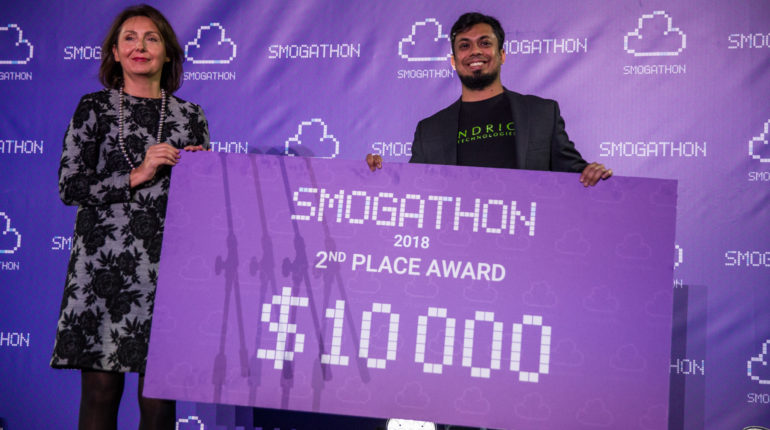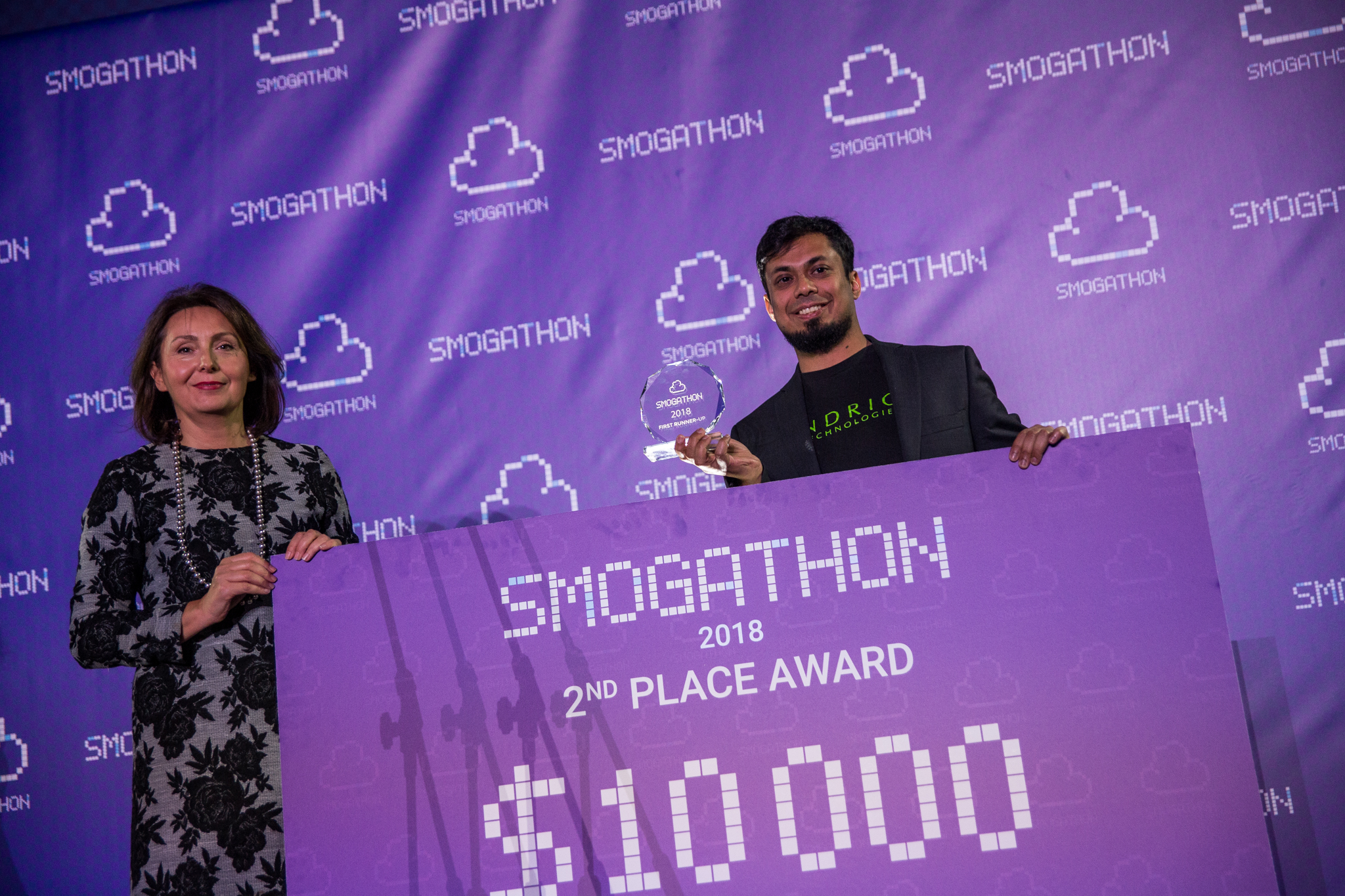Interview with Indrio Technologies, 2nd laureate of Smogathon 2018

Ritobrata Sur - Co-founder / CEO of Indrio Technologies , PhD Stanford University
Kamila Knap: Can you explain how your technology work? What kind of product and services your company offers?
Rito Sur: We make the most compact laser-based sensors for chemical detection and control. We are focusing on making sensors for gas-phase chemicals. Right now, we are developing vehicle exhaust sensors that can be used to reduce NOx emissions by 70%.
What makes Indrio Technologies innovative?
We are the only type of sensor that can function at extreme heat without the need for calibration and at ultrafast speeds. These advantages are critical for success in a vastly wider market than traditional types of sensors. It will fundamentally change how chemical processes are controlled.
How did you come up with an idea to fund Indrio Technologies?
It was a natural extension after a very successful PhD career at Stanford, where I was fortunate to take part in various tests with industrial partners. That was when I realized the gap that exists in commercial chemical sensing.
Is your technology ready for the commercial market?
We are currently engaging in proof-of-concept trials with OEMs. We still need 2 years to reach full commercialization, since this has never been attempted before.
What is the Indrio Technologies business model?
Our business model is currently centred around contracts with auto/truck OEMs. In future, we have expansion plan based on the data that these sensors generate to build an AI component around it. The solution is suitable globally.
What do you think is the next level of anti-pollution innovations?
True change in pollution levels is achievable when solutions are economically viable as well. Our vision is that in future, our resource consumption will be reduced by making our current processes more efficient. That is a win-win situation for businesses and humanity.

Indro Technologies at Smogathon 2018 Grand Finale
What are the company’s future goals?
We would scale up and bring down the cost of our laser-based-sensors through the Auto market. Once we achieve this, we can go to any market sector, such as energy, healthcare, security and information, food and farming, etc.
Any advice for those who are about to start their entrepreneurial journey in anti-pollution technologies?
We are at a critical junction where our collective efforts and successes will decide the fate of human survival! Good luck to all of us and may we all succeed in solving this crisis that we have manufactured for ourselves.